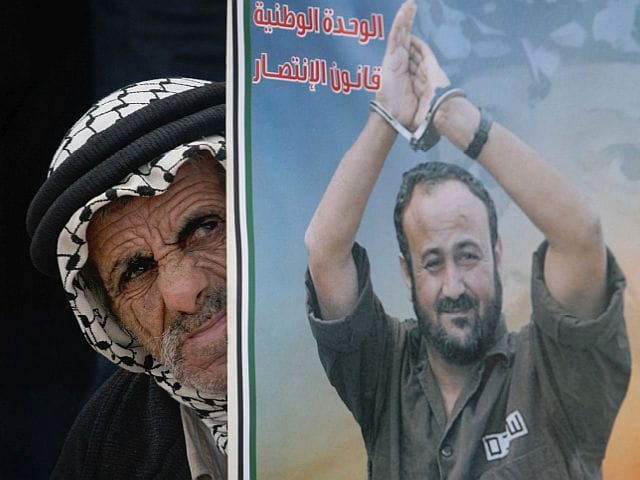The Al-Quds publication reports that Israeli authorities have signaled their readiness to release Marwan Barghouti from prison, the founder of the Tanzim terrorist organization and a prominent leader of Fatah, as part of a new deal with Hamas.
Simultaneously, the publication notes that Israel insists on sending Barghouti to the Gaza Strip upon his release.
It is anticipated that Marwan Barghouti, often considered a leading candidate for the presidency of Palestine, will be at the top of Hamas' list for the initial stage of the prisoner exchange.
Marwan Barghouti: Brief Background
Marwan Barghouti (Marwan Hasib Hussein Barghouti) was born in 1959 in Kafr 'Aqab.
In the early 1980s, he co-founded the youth extremist organization "Shabiba" (led by Muhammad Dahlan) and led the "Shabiba" division at the Islamic University Birzeit in Ramallah.
In the mid-1980s, Barghouti was arrested and sentenced to six years in prison for terrorist activities. In 1987, he was deported to Jordan. In August 1989, he joined the Fatah party under Yasser Arafat's leadership, serving as a coordinator between party cells in the Palestinian Authority and abroad. He later became an independent participant in the Central Committee of the Palestine Liberation Organization.
In April 1994, with Israeli permission, Barghouti returned to the Palestinian Authority and became head of the Fatah Party's Central Committee in the West Bank. However, his tenure was marred by a scandal in May 1997, when serious financial irregularities in Barghouti's activities were uncovered. In 2000, just before the Al-Aqsa intifada, Barghouti lost his post as Fatah's secretary-general in the West Bank but continued to refer to himself as such.
At the onset of the Al-Aqsa intifada in autumn 2000, Barghouti retained his role as the head of the paramilitary terrorist group Tanzim, affiliated with the Fatah party, with headquarters in Ramallah. Tanzim militants were responsible for numerous terrorist attacks against Israeli citizens.
On August 4, 2001, the Israeli military attempted to eliminate Barghouti, firing a missile at a convoy of cars. Although Barghouti escaped unharmed, one of Arafat's personal guard leaders was injured. Following this incident, Barghouti sharply criticized Israeli tactics of political assassinations, even gaining a platform in respected publications like The Washington Post.
On April 15, 2002, Israeli intelligence services arrested Barghouti in Ramallah. Despite calls from many Arab and international human rights organizations for his release, citing political motives behind his imprisonment, Barghouti was found guilty on May 20, 2004, of murdering five Israelis and orchestrating four terrorist attacks. He was sentenced to five life sentences plus an additional 40 years in prison. In January 2005, ahead of the Palestinian presidential elections, he was transferred from solitary confinement to a general cell.
Throughout his imprisonment, Barghouti remained politically active, even running for the presidency of Palestine until withdrawing his candidacy after Mahmoud Abbas pledged efforts for his release. In June 2007, he vehemently condemned the Hamas-led military coup in the Gaza Strip.
Numerous polls conducted in the West Bank suggest that Barghouti would be a popular candidate if Palestinian presidential elections were held today. The current President of Palestine, Mahmoud Abbas, has repeatedly called for Barghouti's release, viewing him as a potential successor.
The idea of releasing Barghouti to bolster Abbas's authority has been supported by the White House, including both the Obama and Bush administrations. Some Israeli politicians, including former President Shimon Peres, have also advocated for his release. However, Hamas's demand to include Barghouti in the "Shalit list" was rejected by the Netanyahu government, leading to his continued imprisonment.












